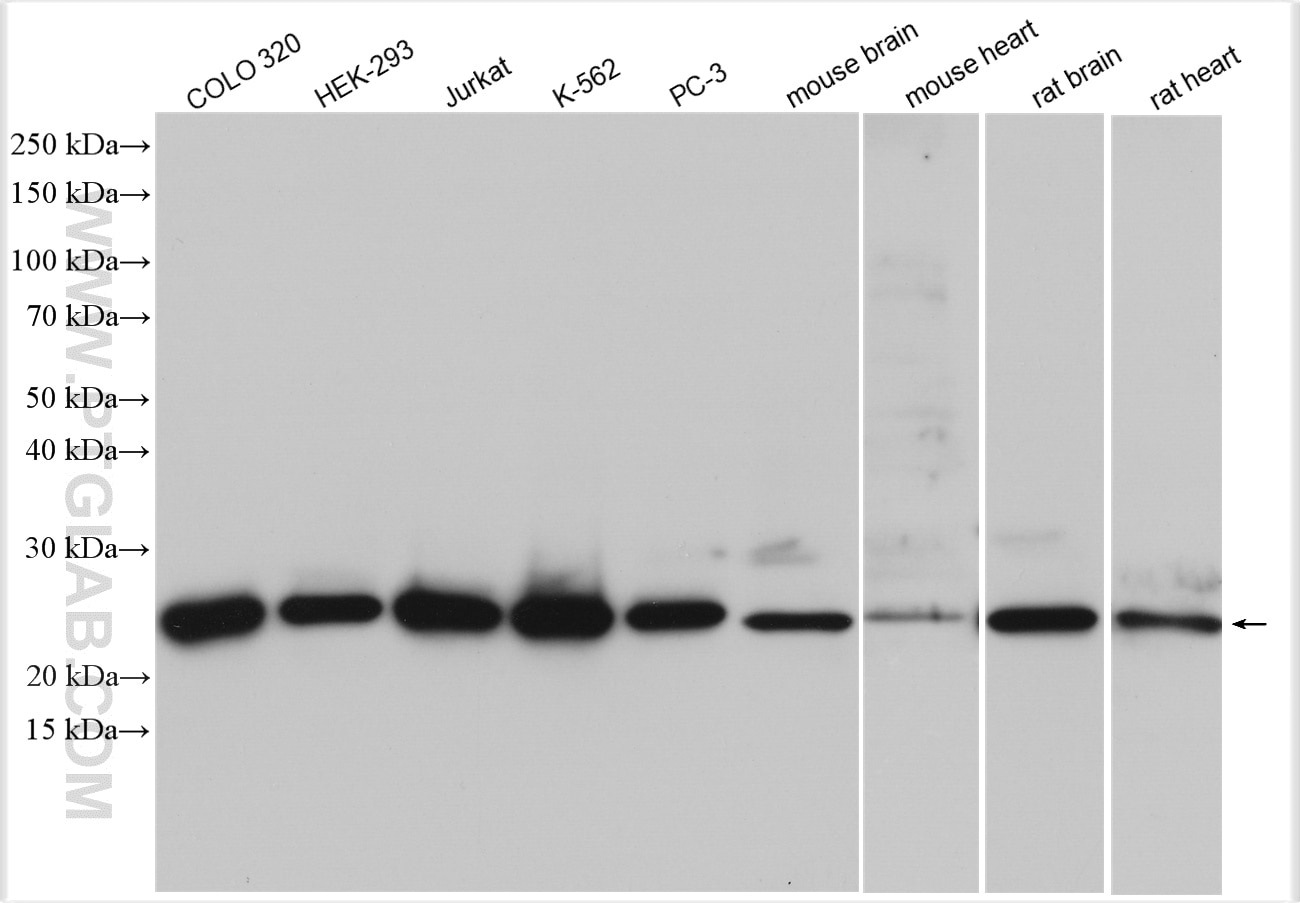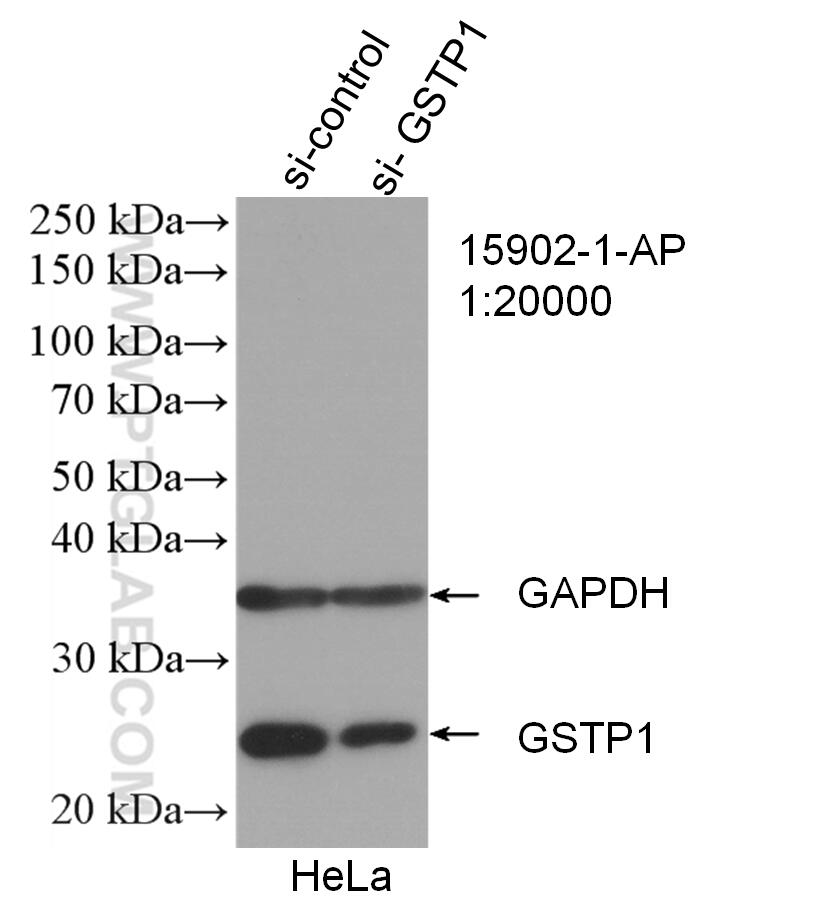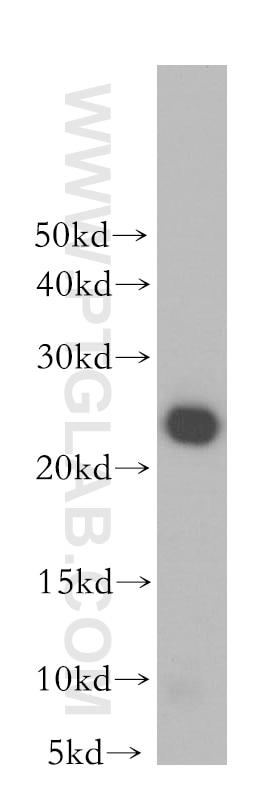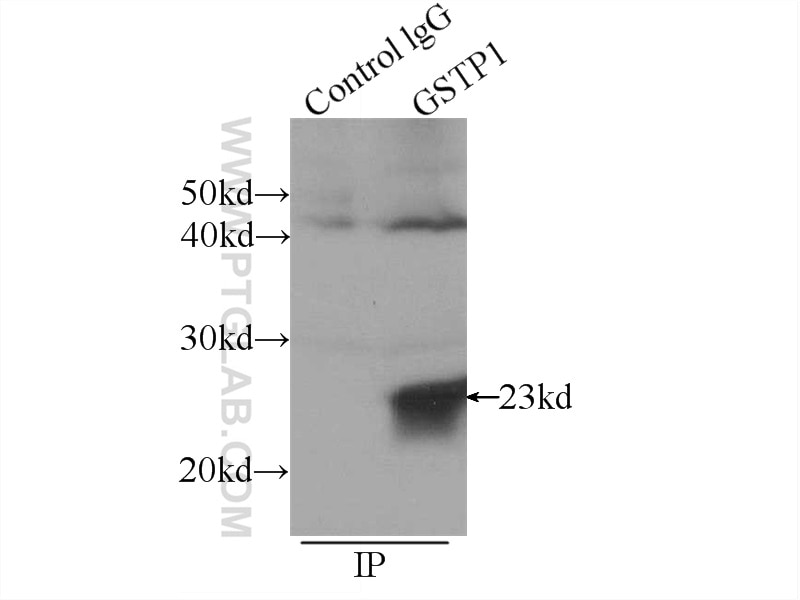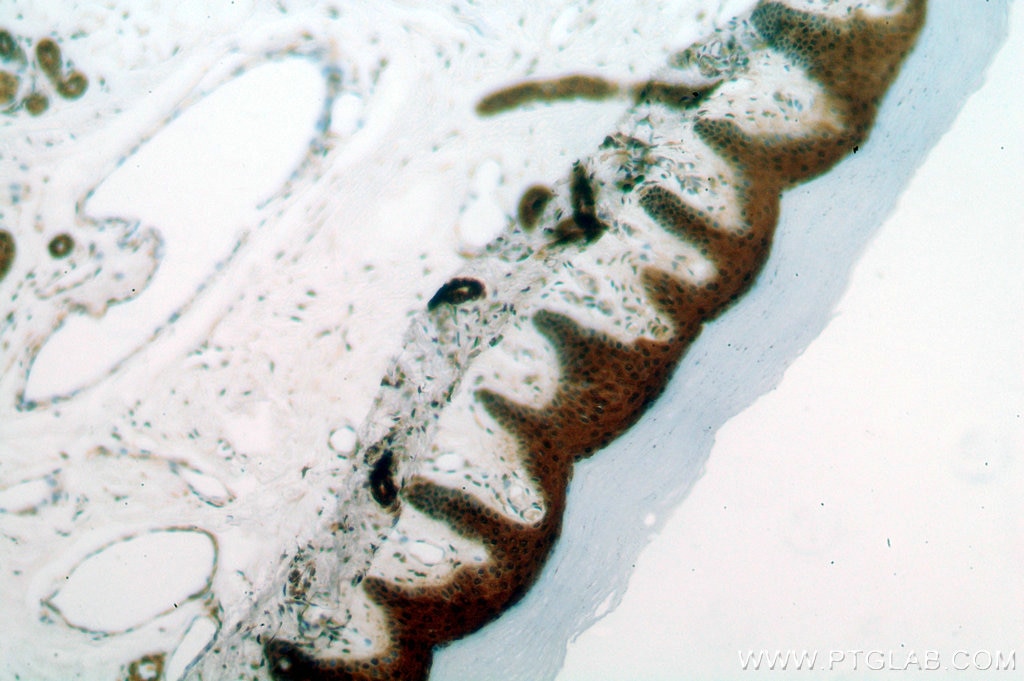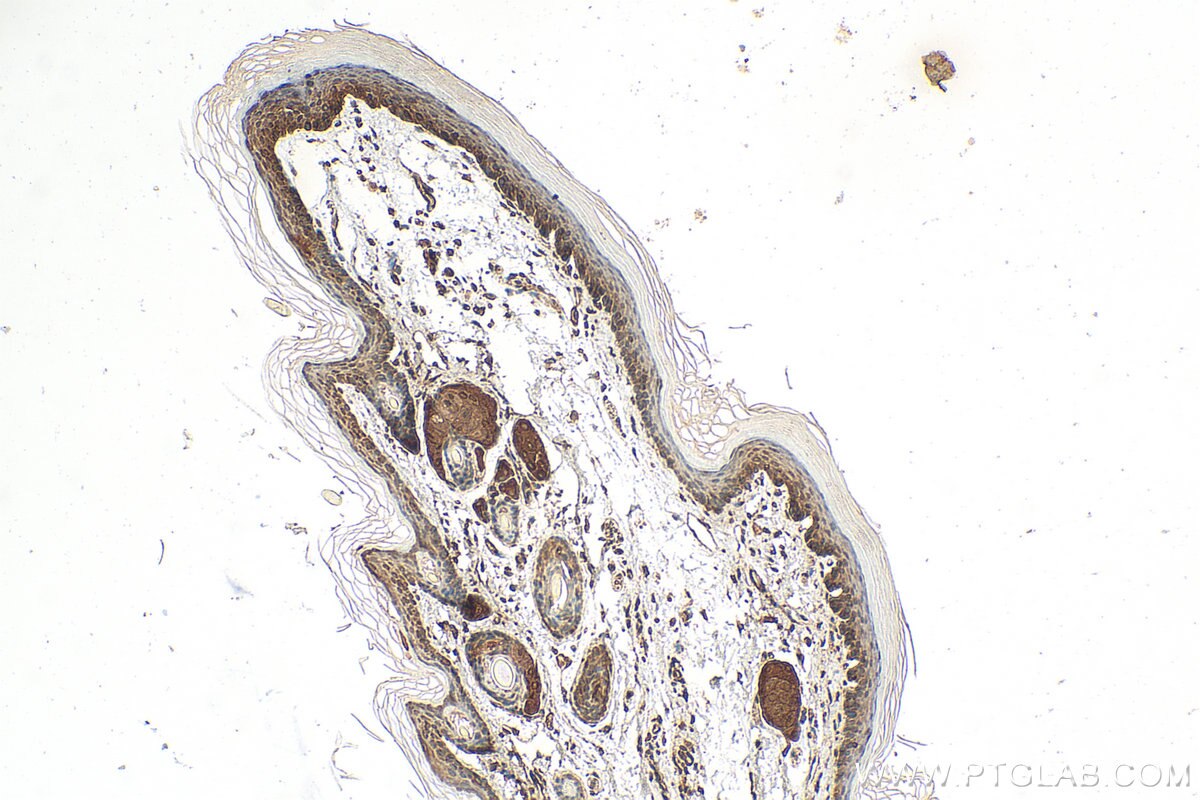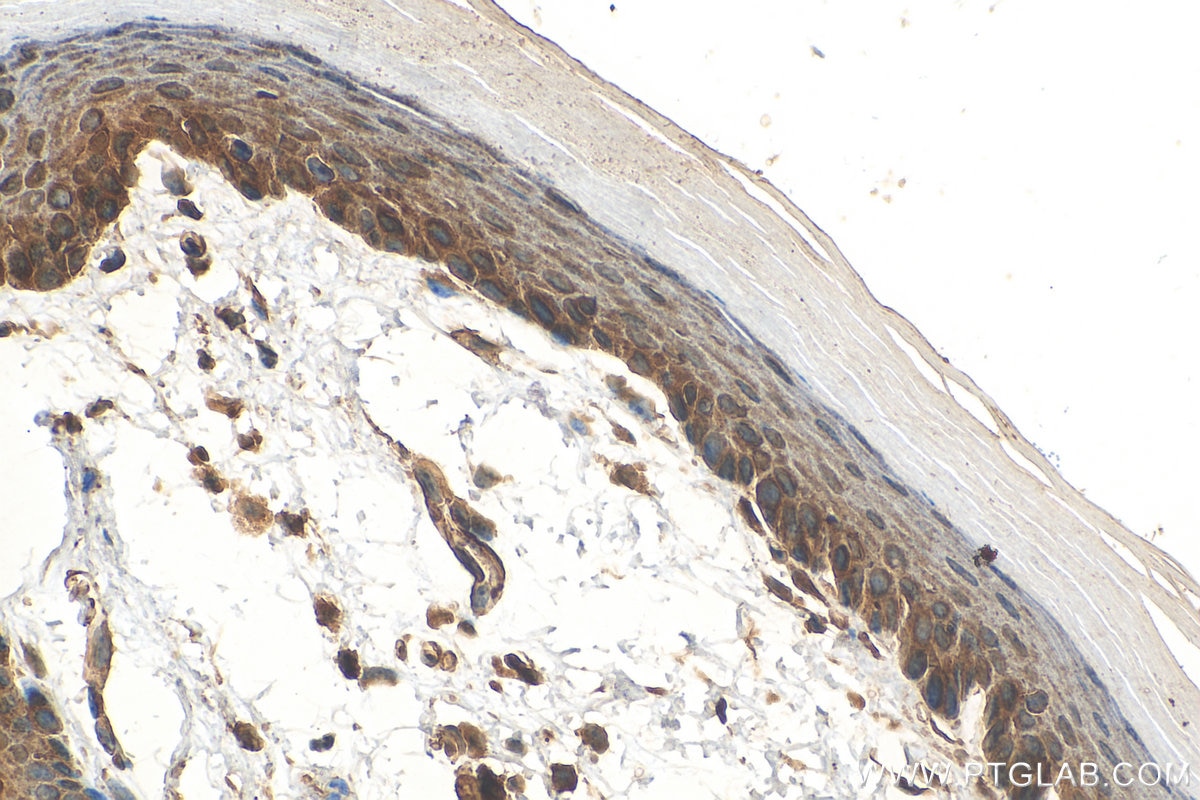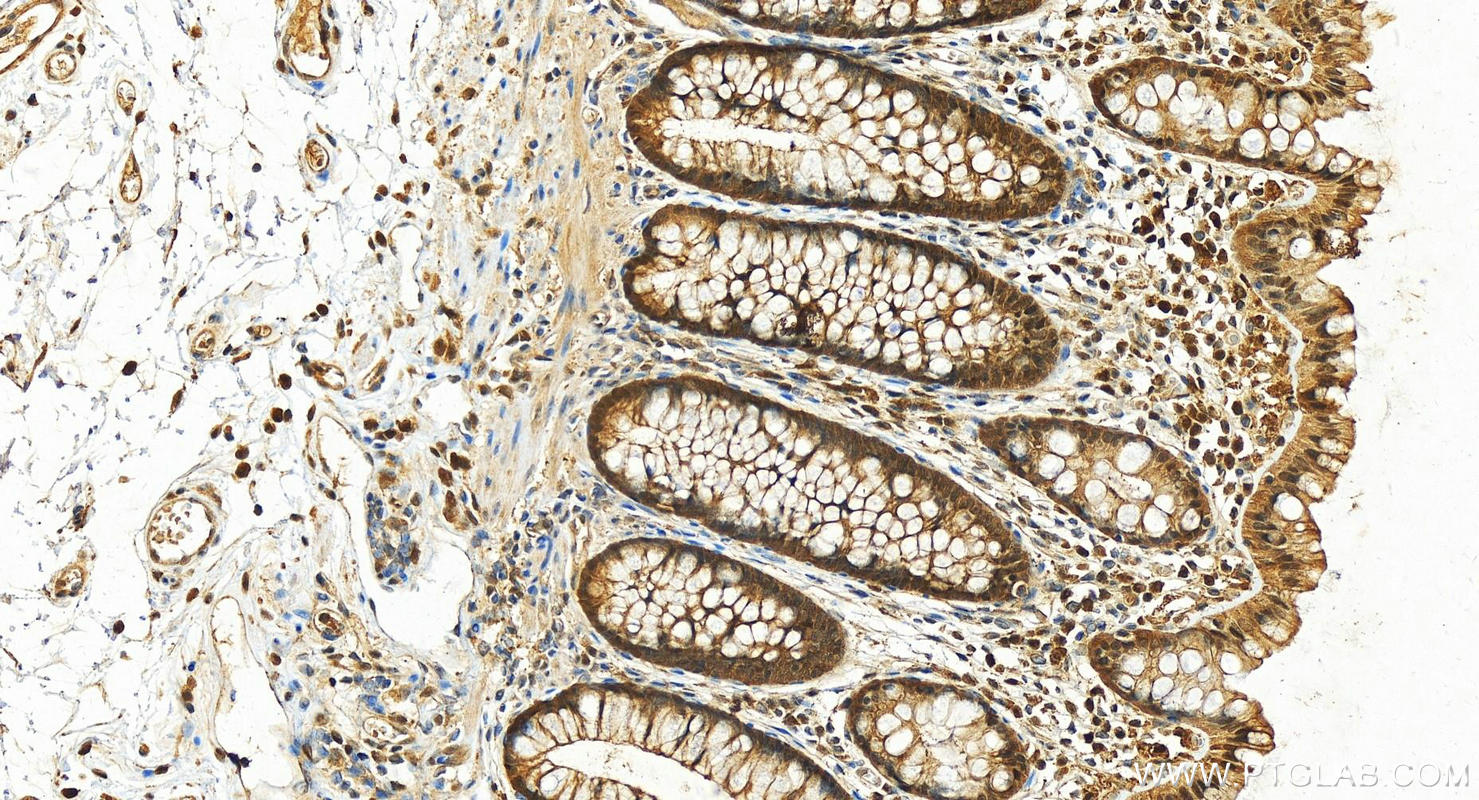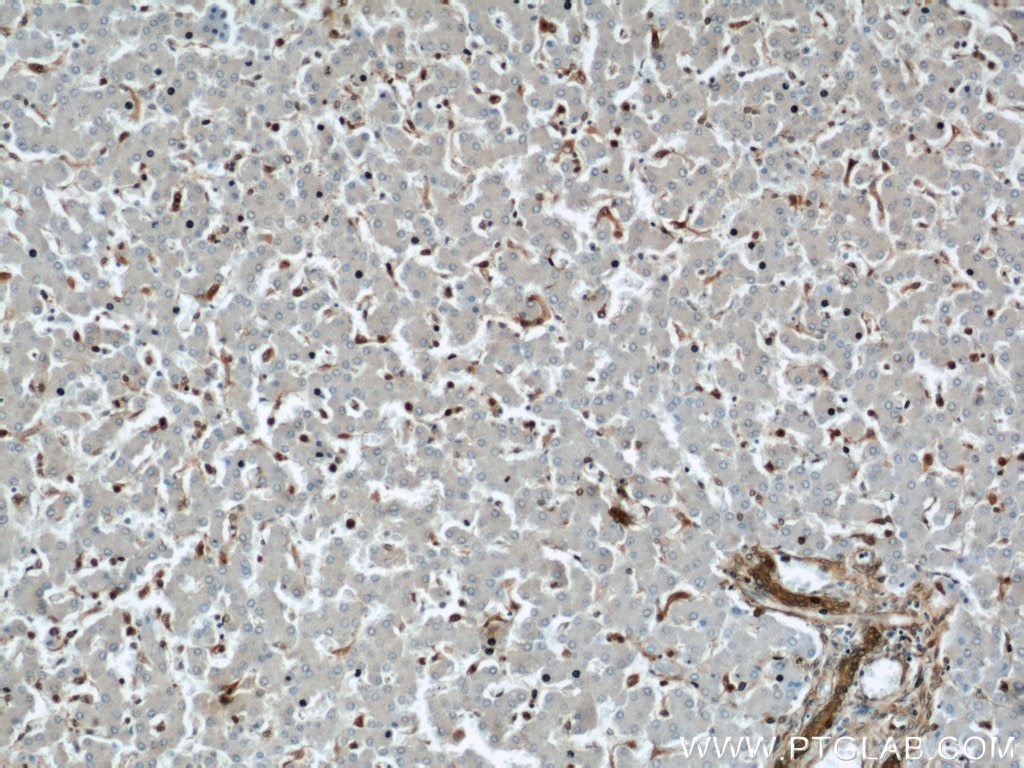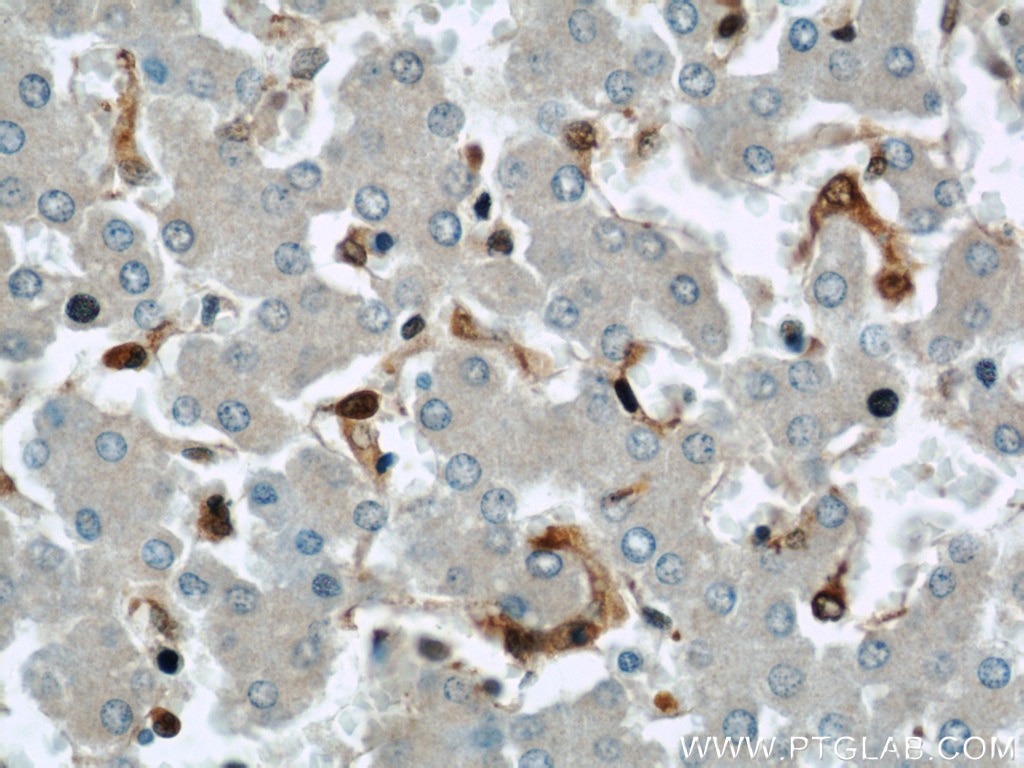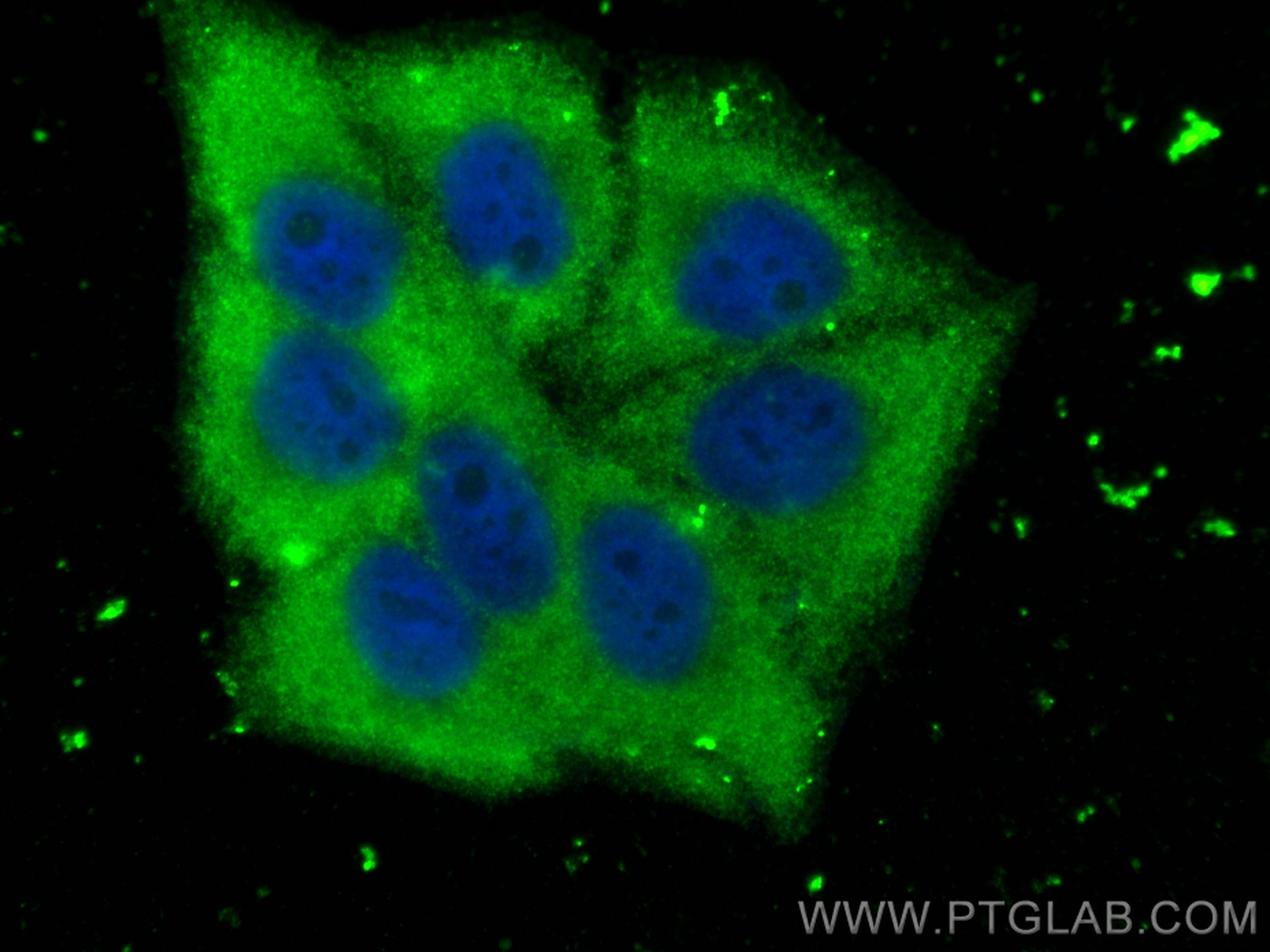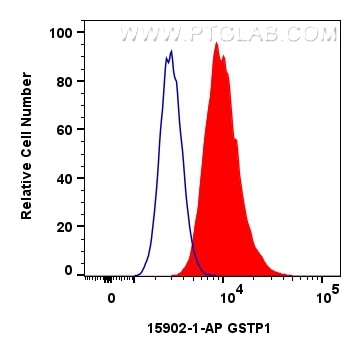Tested Applications
| Positive WB detected in | COLO 320 cells, human brain tissue, HeLa cells, HEK-293 cells, K-562 cells, Jurkat cells, PC-3 cells, mouse brain tissue, mouse heart tissue, rat brain tissue, rat heart tissue |
| Positive IP detected in | mouse brain tissue |
| Positive IHC detected in | mouse skin tissue, human colon, human liver tissue, human skin tissue Note: suggested antigen retrieval with TE buffer pH 9.0; (*) Alternatively, antigen retrieval may be performed with citrate buffer pH 6.0 |
| Positive IF/ICC detected in | HepG2 cells |
| Positive FC (Intra) detected in | HepG2 cells |
Recommended dilution
| Application | Dilution |
|---|---|
| Western Blot (WB) | WB : 1:2000-1:16000 |
| Immunoprecipitation (IP) | IP : 0.5-4.0 ug for 1.0-3.0 mg of total protein lysate |
| Immunohistochemistry (IHC) | IHC : 1:200-1:1600 |
| Immunofluorescence (IF)/ICC | IF/ICC : 1:50-1:500 |
| Flow Cytometry (FC) (INTRA) | FC (INTRA) : 0.40 ug per 10^6 cells in a 100 µl suspension |
| It is recommended that this reagent should be titrated in each testing system to obtain optimal results. | |
| Sample-dependent, Check data in validation data gallery. | |
Published Applications
| KD/KO | See 2 publications below |
| WB | See 30 publications below |
| IHC | See 7 publications below |
| IF | See 7 publications below |
| IP | See 1 publications below |
| CoIP | See 1 publications below |
Product Information
15902-1-AP targets GSTP1 in WB, IHC, IF/ICC, FC (Intra), IP, CoIP, ELISA applications and shows reactivity with human, mouse, rat samples.
| Tested Reactivity | human, mouse, rat |
| Cited Reactivity | human, mouse, rat |
| Host / Isotype | Rabbit / IgG |
| Class | Polyclonal |
| Type | Antibody |
| Immunogen |
CatNo: Ag8731 Product name: Recombinant human GSTP1 protein Source: e coli.-derived, PGEX-4T Tag: GST Domain: 1-210 aa of BC010915 Sequence: MPPYTVVYFPVRGRCAALRMLLADQGQSWKEEVVTVETWQEGSLKASCLYGQLPKFQDGDLTLYQSNTILRHLGRTLGLYGKDQQEAALVDMVNDGVEDLRCKYVSLIYTNYEAGKDDYVKALPGQLKPFETLLSQNQGGKTFIVGDQISFADYNLLDLLLIHEVLAPGCLDAFPLLSAYVGRLSARPKLKAFLASPEYVNLPINGNGKQ Predict reactive species |
| Full Name | glutathione S-transferase pi 1 |
| Calculated Molecular Weight | 210 aa, 23 kDa |
| Observed Molecular Weight | 23-28 kDa |
| GenBank Accession Number | BC010915 |
| Gene Symbol | GSTP1 |
| Gene ID (NCBI) | 2950 |
| RRID | AB_2116216 |
| Conjugate | Unconjugated |
| Form | Liquid |
| Purification Method | Antigen affinity purification |
| UNIPROT ID | P09211 |
| Storage Buffer | PBS with 0.02% sodium azide and 50% glycerol, pH 7.3. |
| Storage Conditions | Store at -20°C. Stable for one year after shipment. Aliquoting is unnecessary for -20oC storage. 20ul sizes contain 0.1% BSA. |
Background Information
Glutathione S-transferase Pi (GSTP1) is anisozyme encoded by the GST pi gene that plays an importantregulatory role in detoxification, anti‑oxidative damage, and the occurrence of various diseases (PMID: 14755684). GSTP1 conjugates reduced glutathione to a wide number of exogenous and endogenous hydrophobic electrophiles. It is involved in the formation of glutathione conjugates of both prostaglandin A2 (PGA2) and prostaglandin J2 (PGJ2) (PMID:9084911). GSTP1 methylation is frequently associated with tumor development or poor prognosis in a wide range of tumors such as neuroblastoma, hepatocellular carcinoma, endometrial, breast, and prostate cancers (PCa) (PMID: 27594734).
Protocols
| Product Specific Protocols | |
|---|---|
| IF protocol for GSTP1 antibody 15902-1-AP | Download protocol |
| IHC protocol for GSTP1 antibody 15902-1-AP | Download protocol |
| IP protocol for GSTP1 antibody 15902-1-AP | Download protocol |
| WB protocol for GSTP1 antibody 15902-1-AP | Download protocol |
| Standard Protocols | |
|---|---|
| Click here to view our Standard Protocols |
Publications
| Species | Application | Title |
|---|---|---|
Mol Cell SMURF2 predisposes cancer cell toward ferroptosis in GPX4-independent manners by promoting GSTP1 degradation
| ||
Redox Biol GSTP1-mediated S-glutathionylation of Pik3r1 is a redox hub that inhibits osteoclastogenesis through regulating autophagic flux
| ||
J Cell Biol TDP-43 mediates SREBF2-regulated gene expression required for oligodendrocyte myelination. | ||
Part Fibre Toxicol Protein target identification and toxicological mechanism investigation of silver nanoparticles-induced hepatotoxicity by integrating proteomic and metallomic strategies. | ||
Glia Developmental maturation and regional heterogeneity but no sexual dimorphism of the murine CNS myelin proteome | ||
Cell Death Dis Poly(ADP-ribosyl)ated PXR is a critical regulator of acetaminophen-induced hepatotoxicity. |
Reviews
The reviews below have been submitted by verified Proteintech customers who received an incentive for providing their feedback.
FH James (Verified Customer) (11-30-2022) | Works pretty well.
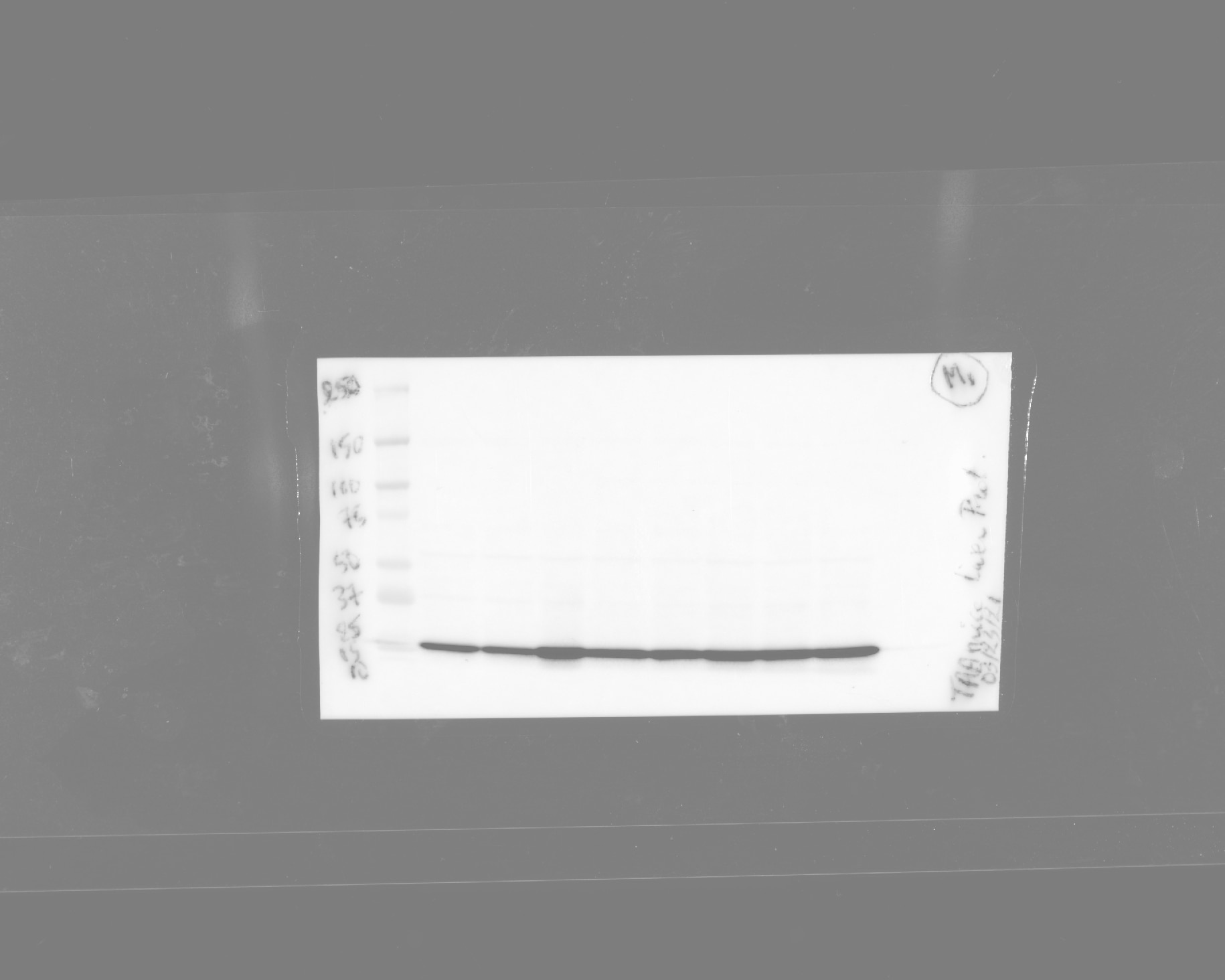 |

